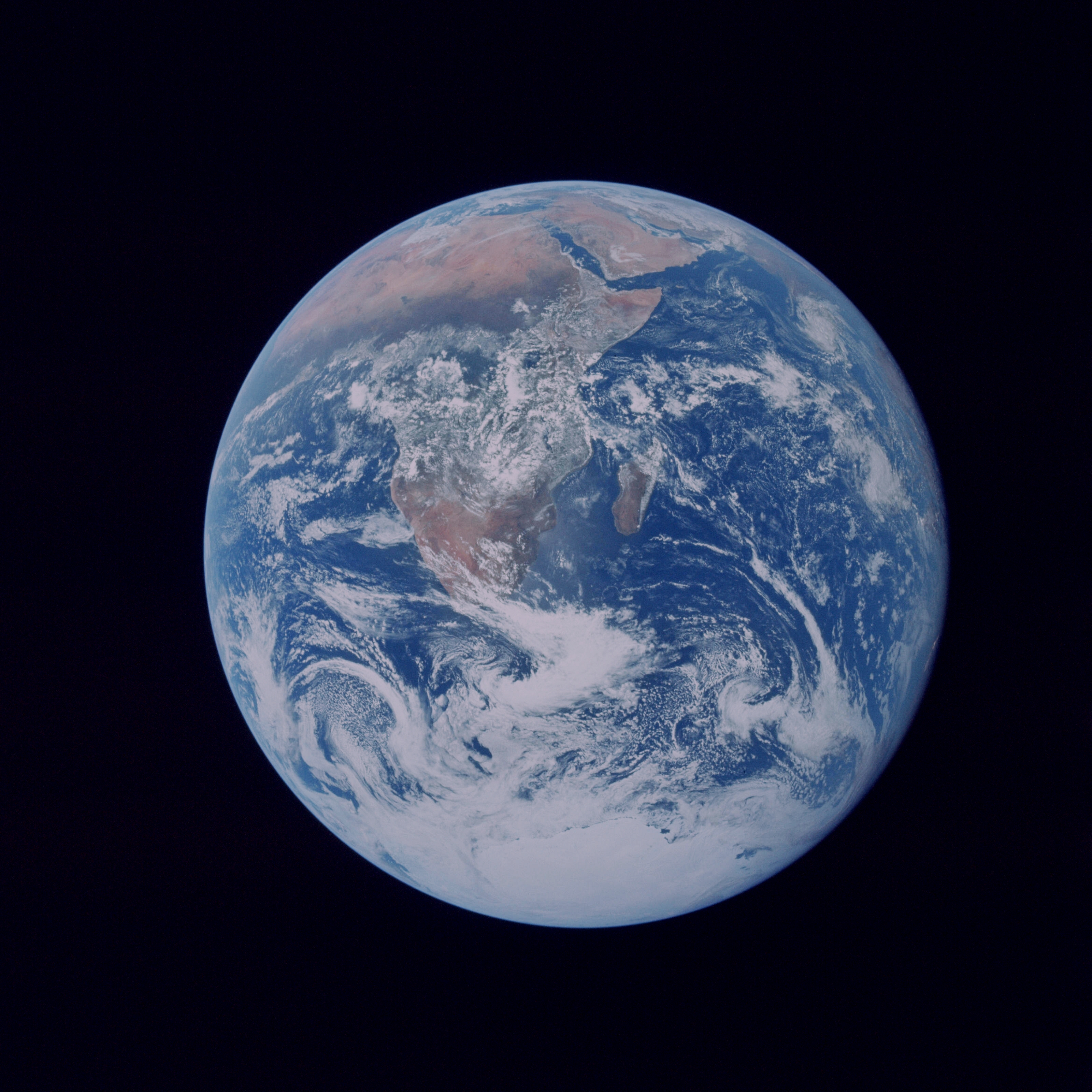A NASA spacecraft has watched a solar storm engulf our planet for the first time.
Using data collected by NASA's STEREO spacecraft, researchers at Southwest Research Institute and the National Solar Observatory have developed the first detailed images of solar wind structures as plasma and other particles from a coronal mass ejection (CME) travelled 93 million miles and impacted Earth.
The images from a December 2008 CME event reveal an array of dynamic interactions as the solar wind, travelling at speeds up to a million miles per hour, shifts and changes on its three-day journey to Earth, guided by the magnetic field lines that spiral out from the Sun's surface.
"For the first time, we can see directly the larger scale structures that cause blips in the solar wind impacting our spacecraft and Earth," said SwRI's Dr. Craig DeForest, lead author of an Astrophysical Journal article released online yesterday. "There is still a great deal to be learned from these data, but they are already changing the way we think about the solar wind."
"For thirty years," said co-author Dr. Tim Howard, also of SwRI, "we have been trying to understand basic anatomy of CMEs and magnetic clouds, and how they correspond to their source structures in the solar corona."
The team used a combination of image processing techniques to generate the images and extract the faint signals from the far brighter foreground and background.
Small 'blobs' of solar wind tracked by the team were more than 10 billion times fainter than the surface of the full moon, for example, and 10 thousand times fainter than the starfield behind them.
"These data are like the first demonstration weather satellite images that revolutionized meteorology on Earth," said DeForest. "At a glance it is possible to see things from a satellite that cannot be extracted from the very best weather stations on the ground. But both types of data are required to understand how storms develop."
Using data collected by NASA's STEREO spacecraft, researchers at Southwest Research Institute and the National Solar Observatory have developed the first detailed images of solar wind structures as plasma and other particles from a coronal mass ejection (CME) travelled 93 million miles and impacted Earth.
The images from a December 2008 CME event reveal an array of dynamic interactions as the solar wind, travelling at speeds up to a million miles per hour, shifts and changes on its three-day journey to Earth, guided by the magnetic field lines that spiral out from the Sun's surface.
"For the first time, we can see directly the larger scale structures that cause blips in the solar wind impacting our spacecraft and Earth," said SwRI's Dr. Craig DeForest, lead author of an Astrophysical Journal article released online yesterday. "There is still a great deal to be learned from these data, but they are already changing the way we think about the solar wind."
"For thirty years," said co-author Dr. Tim Howard, also of SwRI, "we have been trying to understand basic anatomy of CMEs and magnetic clouds, and how they correspond to their source structures in the solar corona."
The team used a combination of image processing techniques to generate the images and extract the faint signals from the far brighter foreground and background.
Small 'blobs' of solar wind tracked by the team were more than 10 billion times fainter than the surface of the full moon, for example, and 10 thousand times fainter than the starfield behind them.
"These data are like the first demonstration weather satellite images that revolutionized meteorology on Earth," said DeForest. "At a glance it is possible to see things from a satellite that cannot be extracted from the very best weather stations on the ground. But both types of data are required to understand how storms develop."

No comments:
Post a Comment